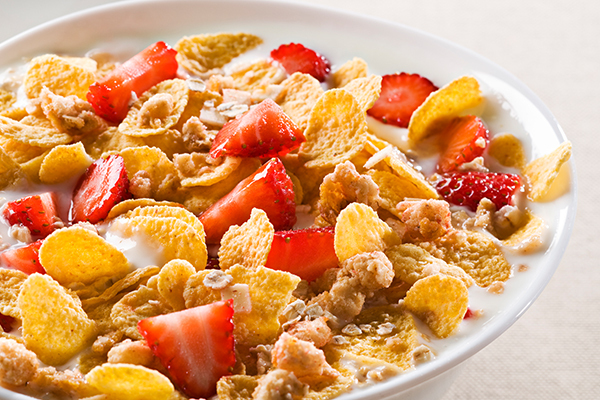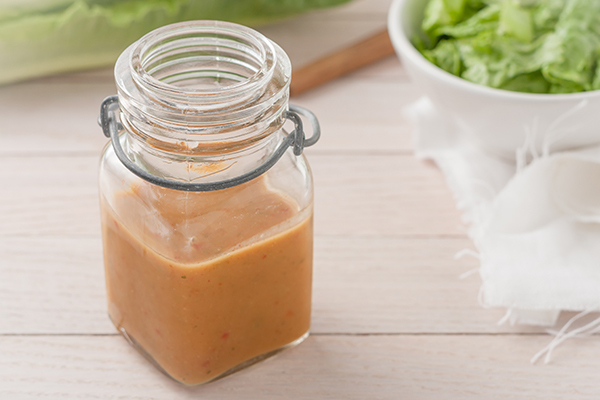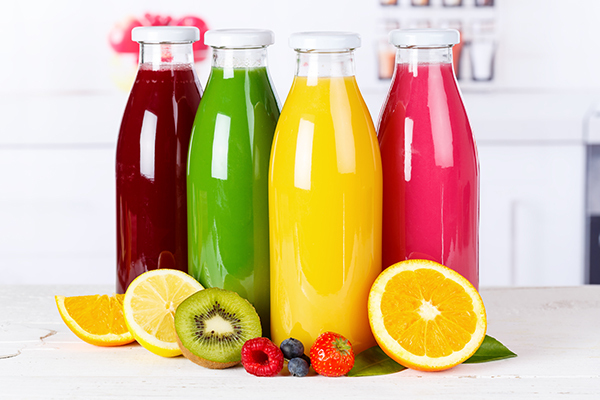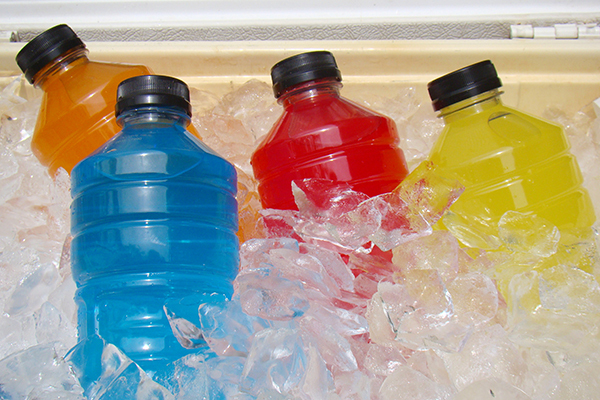In this article:
When embarking on a diet, deciding what to eat is often far more confusing than deciding what foods to give up. For instance, it doesn’t take a rocket scientist to figure out that ditching greasy favorites such as a double-decker burger, curly fries, and pizza will inch you closer to your weight goals.

Healthy eating, on the other hand, is a whole different ball game. It requires careful and informed dietary planning. There are some obviously healthy food choices, and then there are some which can keep you guessing or even surprise you. However nutritionally sound your diet may be, excessive consumption of even the healthiest foods can be a setback for your weight loss targets.
Granted, the so-called “diet foods” are relatively low in calories and a better alternative to the regular junk, but that does not give you the license to eat them to your heart’s desire without any concern for additional weight gain. They are healthy only as long as eaten in moderation and as part of a well-balanced diet.
So, if you are having a hard time losing the extra pounds despite doing everything by the book, the unchecked bingeing of your trusted diet foods might just be the problem.
Many such food items that have become a regular feature of most diets are replete with fats and hidden calories and are often responsible for frequent sugar cravings, energy depletion, and long-term weight gain. (1)
Diet Foods that Are Making You Gain Weight
Here are 9 diet foods that can actually make you gain weight.
1. Breakfast cereal made from refined grains

Refined-grain cereals are among the richest sources of added sugars. They also contain refined carbohydrates that break down to release sugar in our blood. These “supposedly healthy” breakfast munchies can cause a surplus of sugar to flow in our bloodstream and are therefore not as ideal as they are made out to be. (2)
Our body utilizes as much sugar as it needs to convert into energy and stores the rest as fat on the thighs, hips, and waistline. (3) Furthermore, when our blood sugar crashes, we feel hungry and fatigued again, so we end up eating more overall.
According to a study, a breakfast combo of eggs and toast was found to promote greater satiety and led to lower calorie consumption throughout the day in 30 male subjects, as compared with a standard bowl of breakfast cereal. (4)
A 2003 study conducted on female American nurses reports that whole-grain foods promote weight loss, whereas refined-grain foods promote weight gain. This study is published in the American Journal of Clinical Nutrition. (5)
It’s important to distinguish whole-grain from refined-grain cereal, as the former aids weight loss by regulating digestion and keeping us feeling full longer.
Whole-grain cereals are also low in sugar and saturated fats and are a good source of cholesterol-reducing antioxidants. (6)
2. Diet soda
How often do we go out to a salad bar and order a diet coke, too? We think we are getting the taste of soda without its sugar and calories. However, studies have shown that substituting sugar-laden regular sodas with artificially sweetened diet sodas does not really aid in weight loss.
A 2015 study published in the Journal of the American Geriatrics Society notes that people who drank diet soda gained about triple the abdominal fat over 9 years compared with those who did not. (7)
Because artificial sweeteners are not digested the way regular sugar is, they get stuck in our gut instead and change the behavior of the gut’s bacteria. This induces glucose intolerance, which leads to a spike in blood sugar. (8)
Plus, instead of satisfying or curbing our sugar craving, artificial sweeteners have been found to actually increase it. (9)
3. Commercial fat-free salad dressing

Packed with vitamins, nutrients, minerals, fibers, and antioxidants, green salads are incredibly healthy. However, in order to add zing to its taste, many of us top it with prepackaged fat-free dressings.
Because these dressings are devoid of fat, other substances are added to balance their thickness and enhance their taste. One of the most harmful ingredients in fat-free salad dressings is fructose sugar, which is immediately stored as fat in our bodies.
A 2009 study published in the Journal of Clinical Investigation notes that volunteers consuming high-fructose diets were increasingly prone to fat accumulation around their abdominal area. (10)
Participants also showed increased visceral adiposity and lipids and decreased insulin sensitivity in overweight people. (11)(12)
It is found that subjects consuming fat-free salad dressing showed zero absorption of carotenoids such as lycopene, an antioxidant found in various weight-loss supplements. (13)
4. Agave nectar
Agave nectar has recently garnered popularity as a healthy sugar substitute to promote weight loss. It was believed that because agave nectar had a lower glycemic index, it would stop the cycle of blood sugar spikes that contribute to added body fat and thus promote weight loss.
However, it contains high levels of fructose that directly relate to weight gain. According to a 2002 study in the American Journal of Clinical Nutrition, long-term consumption of fructose leads to weight gain and obesity. (14)
Agave is higher in calories than table sugar and extremely high in fructose, a type of sugar that can contribute to insulin resistance and fat accumulation. (11) Furthermore, the liver metabolizes fructose. When the liver encounters fructose, it starts producing fat through a process called lipogenesis.
Raw honey is a healthy sweetener for dieters than agave nectar and contains less fructose.
5. Low-fat yogurt containing sugar or flavorings
When we’re trying to follow a low-fat diet for weight loss, many of us opt for low-fat yogurt to save on calories. However, some types of low-fat yogurt can make us gain more weight.
When yogurt is processed to extract fat, it ends up losing its taste. Thus, in some products, excess sugar is added to make low-fat yogurt more palatable.
When there is a sugar spike in our bloodstream, some of the sugar is converted into energy while the rest is stored as fat. So, including low-fat yogurt in our diet routine may actually lead to weight gain over time. (15)
6. Fruit juices and smoothies

Fruit juices and smoothies are popular components in weight-loss diets as people believe they keep us energized and fresh. While that may be true to some extent, whole fruits are still a better bet than their liquid versions. When fruits are juiced, they are basically removed of their nutritious fiber content and reduced to pure sugar.
Moreover, a lot of the commercial brands are nothing short of sweetened syrups due to added sugar and other unhealthy flavoring agents. Needless to say, regular consumption of fresh fruit juices as well as their commercial counterparts can contribute to excess calorie consumption, which may cause you to gain weight. (16)
Furthermore, certain fruits contain tons of calories. According to the US Department of Agriculture (USDA), one avocado contains 322 calories and one large apple contains 116 calories.
Depending upon the number of fruits we put in our smoothie and their individual sugar and calorie content, we could actually be wrecking our diet.
Some of the sugar content will convert into energy, but the leftover will convert to fat to be stored away. This will lead to significant weight gain over time. (17)
7. Granola
Granola is a popular breakfast and snack food for those of us on strict weight-loss diets. Its high fiber content inhibits appetite and keeps us feeling full longer.
However, its mass production has taken a toll on its quality. Most varieties are now made with puffed rice and added sugar. This makes them incredibly high in fat content.
According to the USDA, one soft granola bar contains 132 calories, which is a whole lot of fat for anyone on a diet.
Furthermore, as many mass-produced granola bars don’t contain dairy or fruit products, their taste is enhanced with added sugars that spike blood sugar levels. This causes the body to store the excess sugar as fat, which accumulates over time. (18)
Avoid the mass-produced stuff if you wish to introduce granola in your diet. Opt for granola that is low in calories and sweetened only by honey, dried fruit, or maple syrup. (19)
8. Dried fruits with added sugars
Dried fruits have been a certified favorite among health-conscious people, and quite rightly so. However, you cannot skip past the fact that a lot of dried fruit variants available today are sugar-coated or saturated with syrup before being dried.
While this might make the fruit sweeter and more appetizing, it takes away from its inherent nutritional goodness. This form of dried fruit is often referred to as “candied” fruit due to the added sugar, which justifies its exclusion from your weight loss diet.
Research has repeatedly highlighted the detrimental effects of added sugar in terms of increasing the risk of obesity, heart disease, and even cancer. (20)(21) Thus, if you wish to include dried fruits in your weight loss plan, be sure to avoid those with added sugar.
To that end, it is essential that you read the ingredients and nutrition information on the package before buying the product.
9. Sports drinks

Athletes and fitness enthusiasts who spend prolonged hours sweating it out at the gym cannot do without sports drinks. This energy fuel not only works as an instant pick-me-up but also helps replenish the body’s electrolytes after intense physical activity.
However, on the flipside, these workout tonics are essentially sugar-laden beverages that can contribute to excess calorie consumption. Due to their considerable sugar content, they can also spike your blood sugar levels and pave the way for insulin resistance and additional weight gain. (22)
This was further corroborated by a study conducted on a large subject group including more than 7,500 children and teens. The results showed that those who regularly drank sports drinks weighed significantly more than their peers. (23)
Thus, anyone who does not engage in strenuous exercise or athletic performance that calls for high endurance should give these beverages a hard pass.
The Prevalence of Overweight and Obesity
For a long time, being overweight was dismissed merely as a cosmetic concern with no real importance given to its detrimental health consequences. It is because of this simplistic understanding of an otherwise complex health issue that people do not take their weight problems seriously.
We are all too familiar with the curse of malnourishment and starvation ravaging the war-torn and underdeveloped countries around the world but remain blissfully unaware of the threat closer home.
The fact remains that a majority of the world’s population resides in countries where being overweight and obese has jeopardized the life of more people than being underweight. (24)
A quick look at the relevant statistics will help you assess the magnitude of this particular health concern. According to the 2016 data released by WHO, a whopping 39% of adults worldwide were reported to be overweight, which accounts for more than 1.9 billion individuals. Of this lot, over 650 million were obese, with the global incidence of obesity figuring at 13% in the same reporting year.
Final Word
You may be ticking all the right boxes as far as fitness and diet are concerned and still fail to move the weighing needle in the right direction.
From going to the gym diligently to making all the right dietary changes such as having a salad for lunch instead of a sandwich or satiating your hunger pangs with a handful of healthy nuts rather than other decadent snacks, you may have it all covered but the results just don’t show.
There is nothing worse for someone who is wholeheartedly committed and invested in losing weight to find all his concerted efforts go to waste even after a month into their fitness regime. Try as they may, they are often unable to identify the glitch in their health routine, and this can often be highly demotivating.
To ensure that your weight-loss efforts come to fruition, it is necessary that you think through your dietary choices. Certain foods that might “seem healthy” reveal themselves to be quite the opposite when you scratch the surface.
Mindlessly signing up for any food product that is marketed as a weight loss aid can undo the progress you have made on all other fitness fronts, and render your weight goal targets even more distant and harder to achieve.
- Was this article helpful?
- YES, THANKS!NOT REALLY


